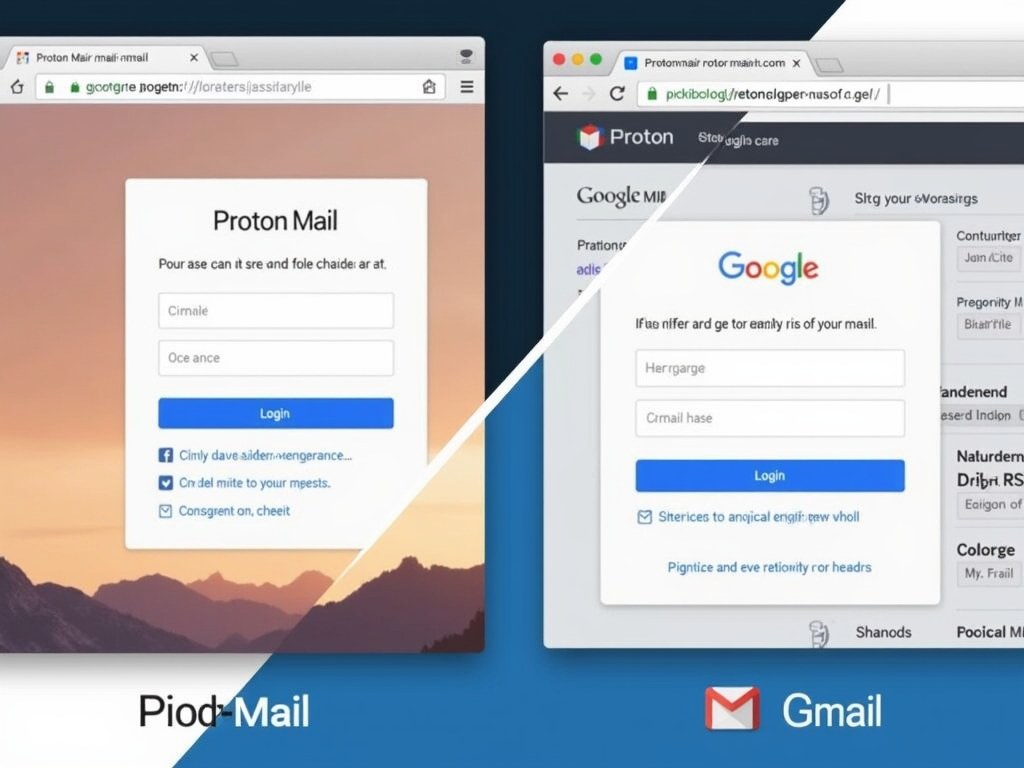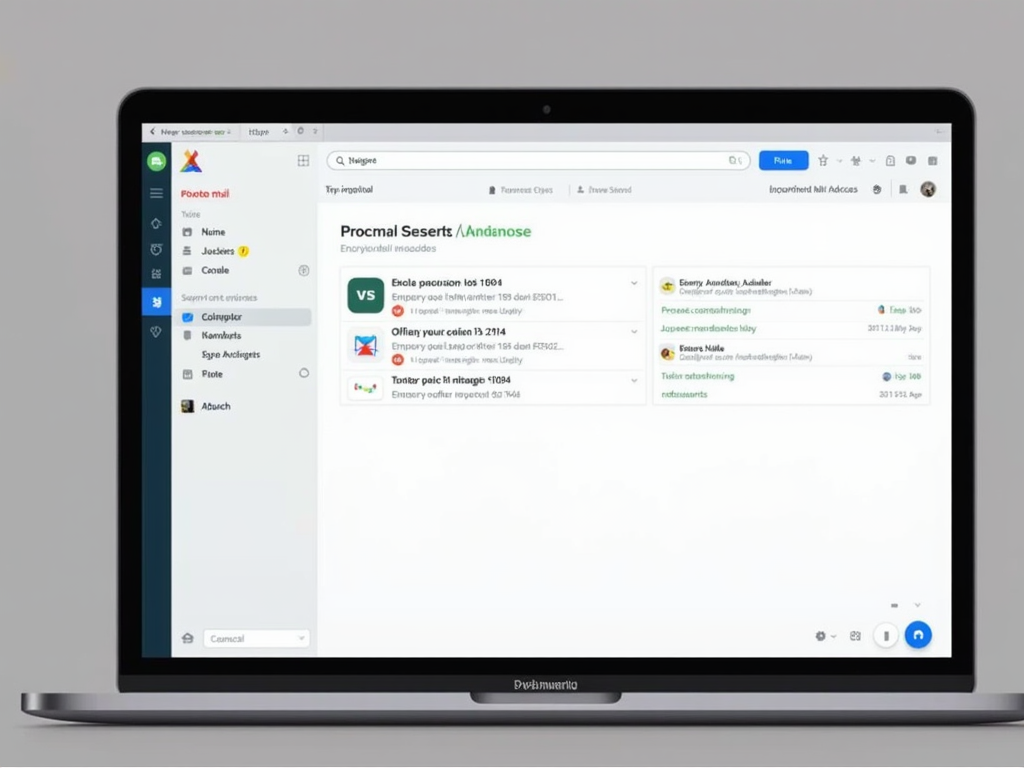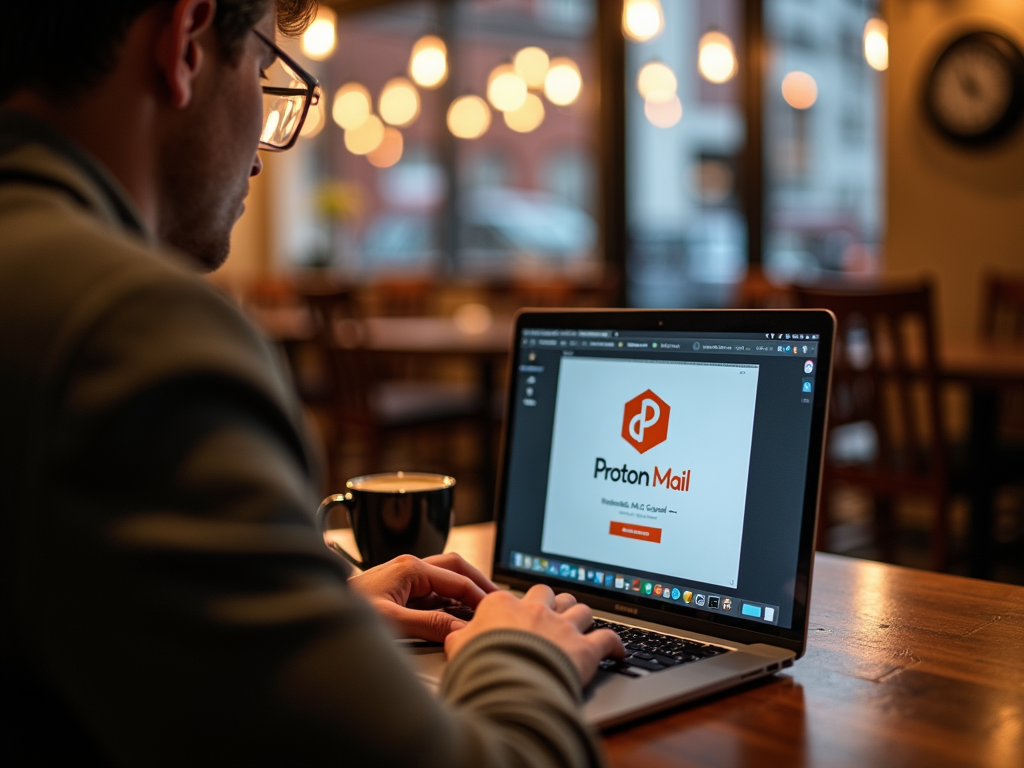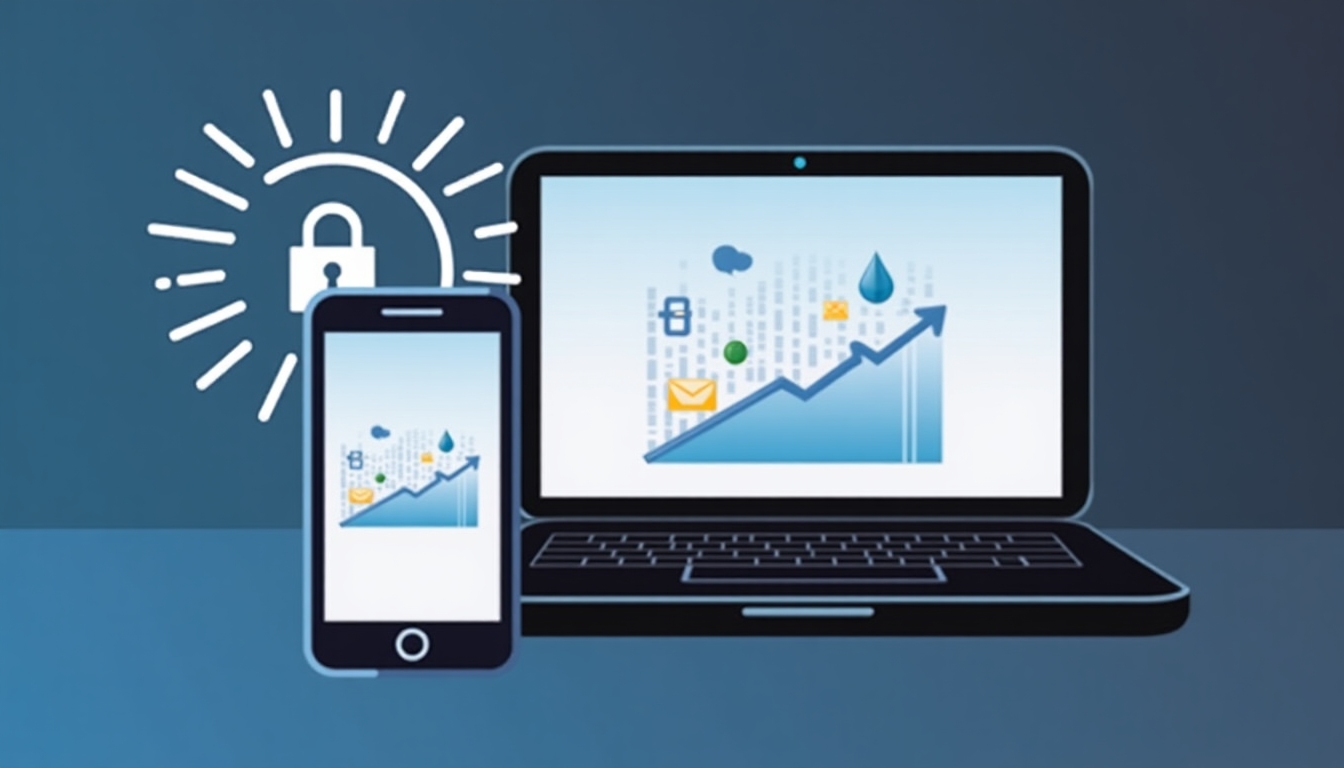Proton Mail vs. Gmail: Why Privacy Matters
Overview: Email is a big part of our daily lives, but not all email services protect your privacy the same way. Proton Mail focuses on keeping your data safe with strong encryption, while Gmail, though popular and easy to use, has faced privacy questions. This article explores why privacy matters and how these two services stack up.

What Are Proton Mail and Gmail?
Proton Mail: Started in 2013 by CERN scientists, Proton Mail is all about privacy. It uses end-to-end encryption, so only you and the person you’re emailing can read the message—not even Proton Mail can peek. It’s based in Switzerland, where privacy laws are tough, and it keeps your emails locked up tight.
Gmail: Google launched Gmail in 2004, and it’s now one of the most used email services around. It’s great for connecting with tools like Google Drive, but Google has a history of scanning emails to show you ads. Even though they say they’ve stopped that for personal accounts, their data collection still worries some people.
Why Does Privacy Matter in Email?
Your inbox holds a lot—personal chats, bank details, work stuff. Without good privacy, anyone could snoop on that. Here’s why it’s a big deal:
- Keeping Your Info Safe: Hackers or companies could grab your details if they get in.
- Stopping Leaks: Big companies get hacked sometimes, and your emails could spill out.
- Staying Private: You don’t want just anyone reading your personal or job-related messages.
Privacy isn’t just nice to have—it’s a must. That’s where services like Proton Mail shine.

Proton Mail’s Privacy Edge
Proton Mail has features that put privacy first:
- End-to-End Encryption: Your emails get scrambled before they leave your device and only unscramble for the recipient.
- Zero-Access Encryption: Proton Mail can’t read your emails even if they wanted to—they’re locked on their servers.
- Open-Source: Anyone can check their code to make sure it’s legit.
- Swiss Base: Switzerland’s strict laws mean extra protection for your data.
- No Personal Info Needed: You can sign up without giving your real name.
These perks make Proton Mail a top pick for online privacy.
Gmail’s Privacy Downsides
Gmail’s got some catches when it comes to privacy:
- Data Tracking: Google collects info about you for ads—your emails could play a part.
- Past Scanning: They used to read emails for ad targeting, and some wonder if that’s fully stopped.
- Tied to Everything: Your Gmail links to your Google searches, maps, and more, building a big profile on you.
If you’re uneasy about that, Gmail might not feel as safe as Proton Mail.

My Take: Why I Picked Proton Mail
I’ve used both Gmail and Proton Mail, and I switched to Proton Mail a while back. Why? I got tired of wondering who might see my emails. With Proton Mail, I know my messages stay private—it’s a weight off my shoulders. I love that I can make emails expire after a set time, like a week, so sensitive stuff doesn’t sit around forever. The app’s simple too, not much different from Gmail, but it feels more secure.
How to Start with Proton Mail
New to Proton Mail? It’s easy to set up:
- Go to Their Site: Head to proton.me and hit “Sign Up.”
- Pick a Plan: Free works for basics; paid gets you extras like more storage.
- Set Up Your Account: Choose a username and password—add two-factor authentication for safety.
- Get Comfortable: The layout’s familiar, so you’ll catch on quick.
Want step-by-step help? There’s a Proton Mail setup guide for beginners out there for you.

Password Management 101: Keeping Your Accounts Secure
No matter what email you use, good passwords keep you safe. Here’s what I do:
- Mix It Up: Every account gets its own password—no repeats.
- Add Two-Factor: A code on my phone makes it harder for hackers.
- Use a Manager: I store tricky passwords in a secure app so I don’t forget.
Proton Mail fits this perfectly with its two-factor option and focus on security.
Gmail vs. Proton Mail: The Numbers
Here’s a quick look at how they compare:
| Feature | Proton Mail | Gmail |
|---|---|---|
| Encryption | End-to-End | In Transit Only |
| Data Collection | None | Yes, for Ads |
| Base Country | Switzerland | USA |
| Free Storage | 1 GB | 15 GB |
Proton Mail wins on privacy; Gmail offers more free space.

Why I Stick with Proton Mail
Switching to Proton Mail wasn’t just about privacy—it was about control. I decide who sees my stuff, not some company. Gmail’s fine for quick chats or if you’re deep in Google’s world, but for anything personal or work-related, Proton Mail’s my choice. It’s not perfect—free storage is small—but the trade-off’s worth it.
Online Privacy Tools to Pair with Proton Mail
Want more privacy? Try these:
- VPNs: Hide your location and browsing.
- Encrypted Messaging: Apps like Signal keep chats private.
- Secure Browsers: Firefox or Brave block trackers.
Proton Mail fits right into this lineup, boosting your online privacy overall.

Wrapping Up
When it comes to Proton Mail vs. Gmail, privacy tips the scales. Gmail’s handy and free, but Proton Mail’s encryption and no-snooping policy make it the safer bet for keeping your info yours. In a world where data leaks happen too often, picking an email that guards your privacy isn’t just smart—it’s necessary. Check out the recommended readings below for more ways to stay secure online.